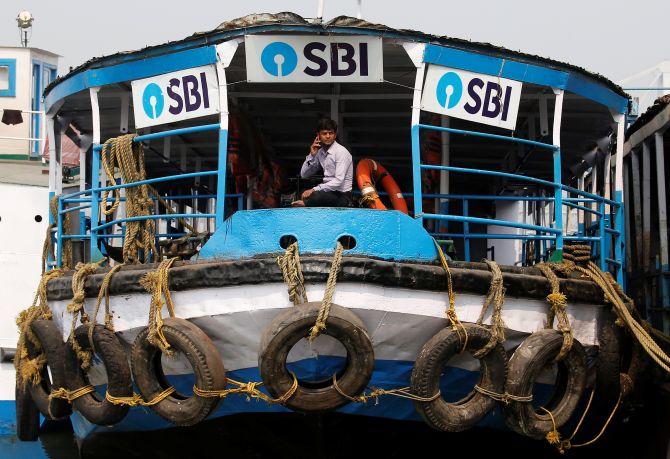 | « Back to article | Print this article |
SBI to introduce OTP-based ATM transactions and the new feature will not require any major change in the present process to withdraw cash.

From January, SBI customers will be able to make ATM withdrawal above Rs 10,000 only after an OTP verification during 8 PM to 8 AM.
The OTP-validated ATM transaction has been introduced to minimise the number of unauthorised transactions, State Bank of India (SBI) said in a Facebook post on Thursday.
"With the introduction of its OTP-based cash withdrawal facility, State Bank ATMs have added another layer of security for cash withdrawals. OTP will be received on the customer's mobile number registered with the bank," SBI said.
This additional factor of authentication will protect State Bank card holders from unauthorized ATM cash withdrawals, it said further.
SBI said that the new feature will not require any major change in the present process to withdraw cash from its ATMs (automated teller machines).
However, this facility will not be applicable for transactions, where a State Bank card holder withdraws cash from another bank's ATM, because this functionality has not been developed in National Financial Switch (NFS), it added.
In this process, once the cardholder enters the amount they wish to withdraw, the ATM screen displays the OTP window.
The customer has to enter the OTP received on the registered mobile number to complete the transaction.
NFS is the largest interoperable ATM network in the country and it manages more than 95 per cent of the domestic interbank ATM transactions.
"This will safeguard the customers against the risk of unauthorised transactions on account of skimmed/cloned cards, while withdrawing cash at State Bank ATMs," the bank said.
Photograph: Rupak De Chowdhuri/Reuters